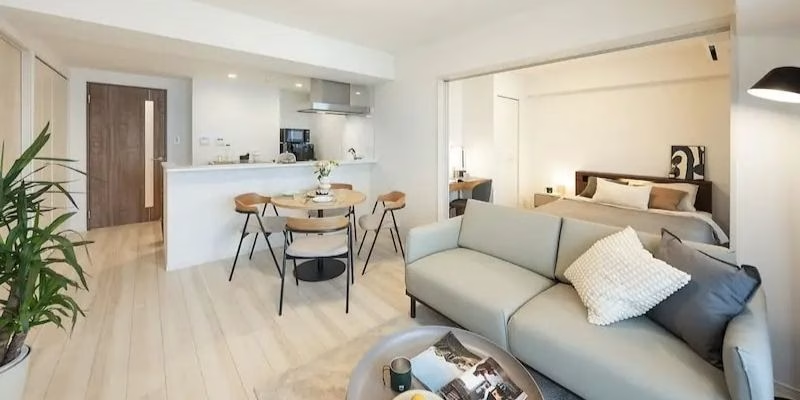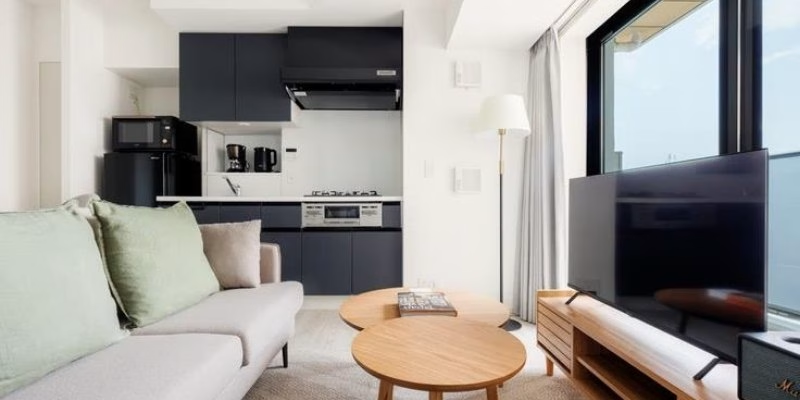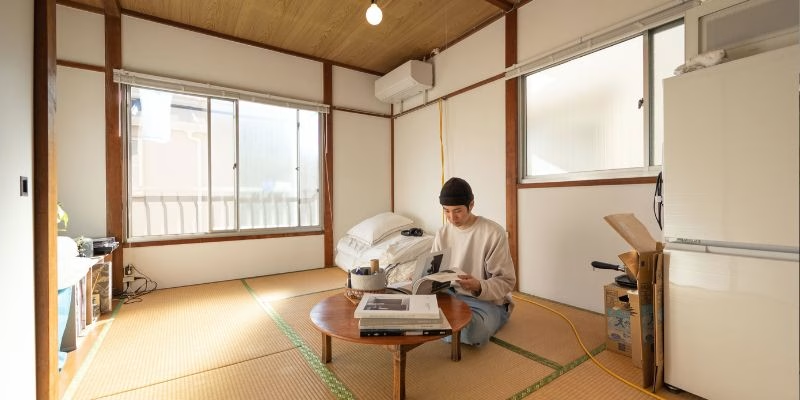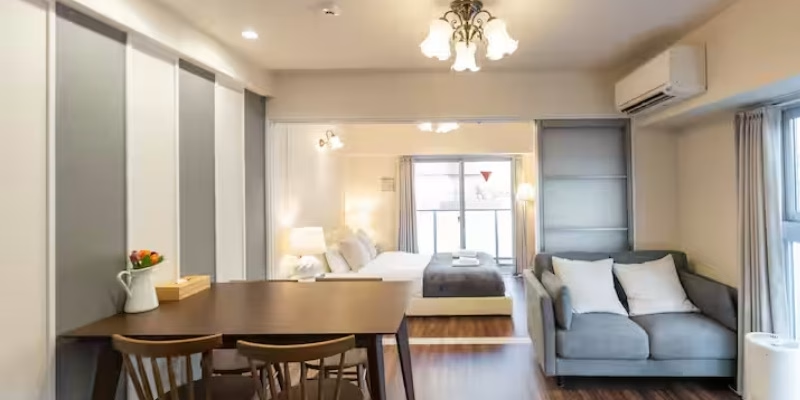The emergence of the Non-Japanese Friendly Apartment concept is a market-driven necessity and a social response. These specialized properties and services are specifically designed to dismantle the unique barriers faced by non-Japanese residents. They offer not just a place to live. They also provide a guarantee of fairness, transparency, and cultural mediation. These services are fundamentally reforming the Japanese housing landscape. They achieve this by eliminating burdens like Key Money (Reikin) and providing robust multilingual support. Innovative firms like Arealty spearhead these reforms. Their efforts ensure that housing security is accessible to all.
The Multifaceted Barriers Preventing Foreigners from Renting
The high rejection rate for international applicants stems from deeply embedded risk-management philosophies and cultural expectations held by property owners in Japan. It is a multi-layered problem spanning finance, logistics, and social harmony, all rooted in an underlying fear of the unknown.
The Landlord’s Trust Deficit and Cultural Anxiety (Kyōzon)
For many Japanese landlords, the primary concern isn’t the applicant’s solvency, but their potential impact on community harmony (Kyōzon) and property condition. These cultural anxieties translate into genuine fears about unmanageable maintenance and conflict.
- Routines and Rules: The Social Risk Factors: Adhering strictly to community schedules and protocols, particularly for waste management and noise, is non-negotiable in Japan. Landlords fear becoming unwilling mediators in disputes caused by non-compliant tenants, which leads to severe pressure from other residents.
- Seikatsu Oto – Noise and Lifestyle: This is the most common neighbor complaint, causing severe stress for landlords. Owners worry tenants may not understand the poor soundproofing of many older apato buildings. They fear tenants will engage in loud activities late at night.
- Gomi-no-dashikata – Strict Garbage Rules: Japan’s rigid system requires meticulous sorting and disposal on specific days and times. Non-compliance often trips up foreigners. It leads to rejected trash and sanitation problems. As a result, the landlord must personally intervene.
- Property Damage and Legal Risk Factors: Japanese tenancy laws outline that the tenant must return the apartment to its Original State (Genjō Kaifuku). The laws specify this responsibility clearly. The tenant is responsible for this restoration. This excludes natural wear and tear (tsunen no sonmō). Landlords’ primary financial fear is paying for costly repairs that exceed the security deposit due to tenant negligence.
- Shoji – Damage to Tatami and Screens: Traditional elements are sensitive to moisture, stains, and heavy furniture. Replacement costs for these items are high, often resulting in complex disputes over who pays the restoration bill.
- Indoor Smoking: Smoking causes severe, persistent yellowing and odor. It requires the expensive replacement of wallpaper and ceiling material. This damage is often not fully covered by the deposit.
The “Six Golden Keys” Financial Burden
The Japanese system of high upfront payments presents a massive liquidity shock for newcomers seeking a Non-Japanese Friendly Apartment. This is often colloquially known as the “six golden keys.” This historical structure is fundamentally incompatible with the financial reality of recent immigrants or temporary residents.
- The High Barrier to Entry: The cumulative total of required payments before receiving the keys is substantial. It typically ranges from 4 to 7 months’ worth of rent. These payments must be made in cash or via immediate bank transfer. This steep financial cliff deters many qualified international applicants.
- Key Money (Reikin): Non-refundable. A historical “thank you” gift to the landlord, a pure sunk cost with no practical value.
- Security Deposit (Shikikin): Partially refundable. Used to cover excessive damage and mandatory cleaning fees upon move-out.
- Agency Commission (Chūkai Tesūryō): The fee paid to the real estate agent, typically one month’s rent plus tax.
- Guarantor Company Fee (Hoshō Gaisha Riyo-ryō): This is an essential fee if a personal Japanese guarantor cannot be found. It is often 50% to 100% of the first month’s rent. The fee is paid initially and renewed annually.

Redefining the Friendly Rental Experience
The market has responded to these severe barriers with specialized models that prioritize financial accessibility and cultural clarity. These Non-Japanese Friendly Apartment Japan solutions aim to de-risk the tenant profile for the landlord.
Differentiating Between Friendly Property Types
Choosing the correct property model depends entirely on the duration of stay, budget constraints, and need for furnishings. To succeed in your search, understand the nuances of each type. Each offers a different balance of cost and privacy.
- The Primary Friendly Housing Models:
- Friendly Traditional Lease (Apartment/Mansion): Features “Zero-Zero” (0 Reikin, 0 Shikikin) or low initial costs. These properties accept international applicants and partner with guarantor companies. This is ideal for long-term residents seeking personal freedom and unfurnished spaces. Here is a curated list of featured Friendly Traditional Lease apartments. These apartments are located in popular expatriate areas across Tokyo: https://arealty.jp/listing/zero-zero-apartment-tokyo. This demonstrates the wide variety of properties available under this model.
- Serviced Apartments: Fully furnished, all utilities included, and offer flexible short-term contracts (from one month). Perfect for corporate professionals or individuals during the initial settling-in phase. For those who want speed and convenience during their transition, we have a list of high-quality Serviced Apartments. They are known for their exceptional amenities. They also ensure swift contract processing: https://arealty.jp/listing/fully-furnished-apartment-in-tokyo
- Share House (Guesthouse): The initial cost is the lowest, often just a small deposit and first month’s rent. No guarantor is needed. Utilities are bundled. Best suited for students and budget-conscious newcomers prioritizing cost savings and a communal environment.
Advanced Search Strategy: Mitigating Future Risks
When engaging in a search for a Non-Japanese Friendly Apartment in Tokyo, the applicant must look beyond monthly rent. They should proactively investigate the contractual details that impact long-term financial stability. A smart strategy involves understanding hidden fees and building materials.
- Critical Contractual Details to Verify: In addition to the monthly rent, future costs must be understood to avoid unexpected fees. The two most common are renewal fees and move-out costs, which can surprise uninformed tenants.
- Renewal Fee/Koshinryo: Japanese contracts typically run for two years. They require a renewal fee, often equivalent to one month’s rent, to extend the lease. Lowering this fee through negotiation can save significant money. Alternatively, look for properties with “Renewal Fee Nashi” (no renewal fee) to save over the long term.
- Prioritize structures made of RC (Reinforced Concrete) or SRC (Steel-Reinforced Concrete) over Wood-Frame (apato). Concrete structures offer vastly superior soundproofing (bōon) and security, directly alleviating the landlord’s primary fear of noise complaints.
- Move-Out Cleaning Fee: Verify if the mandatory professional cleaning fee is a fixed price. Determine how much the fee is. Check if it’s deducted from the initial Shikikin. This prevents a surprise bill upon departure.

Arealty: The Strategic Partner for Resolving the Trust Gap
Arealty is not merely a broker. It functions as a Cultural Trust Mediator. This essential intermediary directly resolves the deep-seated cultural and logistical concerns of Japanese property owners. Their system elevates the international applicant from a high-risk liability to a reliably supported tenant.
Exclusive Tools for Trust Validation
Arealty’s core process revolves around creating an applicant profile that is demonstrably safer and more compliant than the average tenant. They achieve this through proactive documentation and explicit assurances to the landlord, turning the foreigner’s application into a low-risk proposition.
- Comprehensive Submission Package: Arealty supplements standard application materials with proprietary documents that address the landlord’s specific anxieties head-on.
- Cultural Compliance Commitment Letter: A formal, bilingual document accompanies the application. The tenant explicitly signs an agreement to adhere to strict Japanese property rules. These rules include trash schedules, no smoking, and no noise after 10 PM. This directly neutralizes the landlord’s major fears.
- International Financial Attestation: A clear explanation of the applicant’s income source (e.g., multinational company salary, foreign savings) translated and formatted in a way that aligns with Japanese financial scrutiny standards.
- Streamlined Guarantee Integration: Arealty has cultivated strong partnerships with guarantor companies that have high acceptance rates for international residents. They integrate the fee into the initial cost, making the guarantor process a seamless formality rather than a roadblock.
Continuous Legal and Logistical Support (Post-Contract Assurance)
The assurance provided by Arealty extends well beyond the signing of the lease. They commit to remaining the authoritative and fluent point of contact for the landlord. This commitment continues throughout the entire tenancy. It is a key selling point to hesitant owners.
- The Permanent Liaison Role: The Arealty agent serves as the designated contact point for the landlord. This role lasts for the entire duration of the tenant’s contract. This reassures the landlord that, in case of emergency, they can instantly reach a professional. Emergencies may include a water leak or noise complaint. The Arealty agent is a bilingual Japanese-speaking party. This eliminates the fear of communication breakdown.
- Compulsory Cultural Orientation: Before key handoff, Arealty offers a mandatory orientation. This orientation is specialized and conducted in the client’s native language. It details specific property maintenance requirements. It also explains local municipality protocols and the crucial rules of neighborly etiquette. This ensures the tenant is fully educated on how to maintain Kyōzon.
- The Essential Setup: Arealty provides practical help to ensure immediate stability. They assist with setting up essential utilities like gas, electricity, water, and internet. This process can be confusing and slow for non-Japanese speakers.

The Efficient Rental Process: Achieving Success with Arealty
Arealty streamlines the often-protracted and frustrating Japanese rental process into a transparent, client-focused journey. They control every variable that typically leads to rejection. This maximizes the opportunity for a successful outcome on the first application attempt.
Initial Assessment and Financial Qualification
The process begins by setting a realistic budget grounded in the realities of the Japanese market for a Non-Japanese Friendly Apartment. Arealty uses the applicant’s international financial history to establish credibility before any property viewings occur.
- Global Financial Screening: Review employment contracts, bank statements, and salary slips. This confirms the tenant meets the standard “36x Annual Income” ratio often required for rent approval.
- Strategic Area Recommendation: Based on confirmed budget, Arealty suggests specific neighborhoods. These neighborhoods align with the client’s commute needs. They also offer foreigner-friendly apartments in Tokyo.
Curated Search and Property Selection
Arealty’s advantage is its curated, pre-vetted inventory. They save the client time and emotional stress. They eliminate the frustrating experience of applying for apartments that would immediately reject a foreign passport holder.
- Access to Vetoed Inventory: Clients gain exclusive access to listings. The landlord is confirmed to accept international residents in these listings. This bypasses the majority of properties that enforce the Gaikokujin Okotowari policy.
- Đánh giá Căn hộ Chuyên sâu (In-Depth Property Evaluation): Agents provide technical details on soundproofing and structure (RC vs. Wood-Frame) to match the property to the tenant’s lifestyle needs.
Application, Trust Mediation, and Approval
This is the most critical phase, where Arealty directly intervenes. Arealty’s direct intervention and guarantee documentation transform the application from a high-risk request into a professionally vouched commitment.
- Cultural Trust Mediation: Arealty agents submit the application package. It is complete with the Cultural Compliance Commitment Letter. This directly addresses the landlord’s anxieties about noise and rule-breaking.
- Seamless Guarantor Processing: Arealty manages the entire process with the Guarantee Company. This management ensures rapid approval. It also removes the need for any personal guarantor.
Contract Finalization and Settling-In
After approval, the support continues to ensure the client is legally secure and logistically stable. This final step is crucial for the client’s long-term success in Japan.
- Bilingual Contract Explanation: The agent provides a detailed, line-by-line explanation of the lease agreement. They focus specifically on liability clauses, move-out procedures, and costs. This ensures informed consent.
- Comprehensive Settling-In Support: Arealty guides the client through essential bureaucratic steps. These include local city registration (Ward Office/Shichōson), opening a Japanese bank account, and utility connection. These tasks are often confusing and time-consuming for newcomers.
Conclusion
The market for apartment for rent Japan is rapidly shifting toward greater openness and transparency, driven by the emergence of the Non-Japanese Friendly Apartment Japan sector. This evolution is vital for Japan’s global standing and economic vitality.
The success of firms like Arealty lies in their understanding. Securing housing for a foreigner in Japan is not a simple transaction. It is a complex act of cultural bridging and risk management. Arealty preemptively solves the core issues of high initial cost and landlord anxiety. They use proprietary protocols, transparent systems, and robust support to achieve this. This approach transforms the daunting process into a smooth, successful transition.
Choosing a specialized service ensures that your focus remains on starting your new life in Japan. You can be confident that your housing foundation is secure, compliant, and genuinely welcoming. Your home in Japan awaits, free from the traditional burdens of Key Money and cultural uncertainty.






Leave a Reply